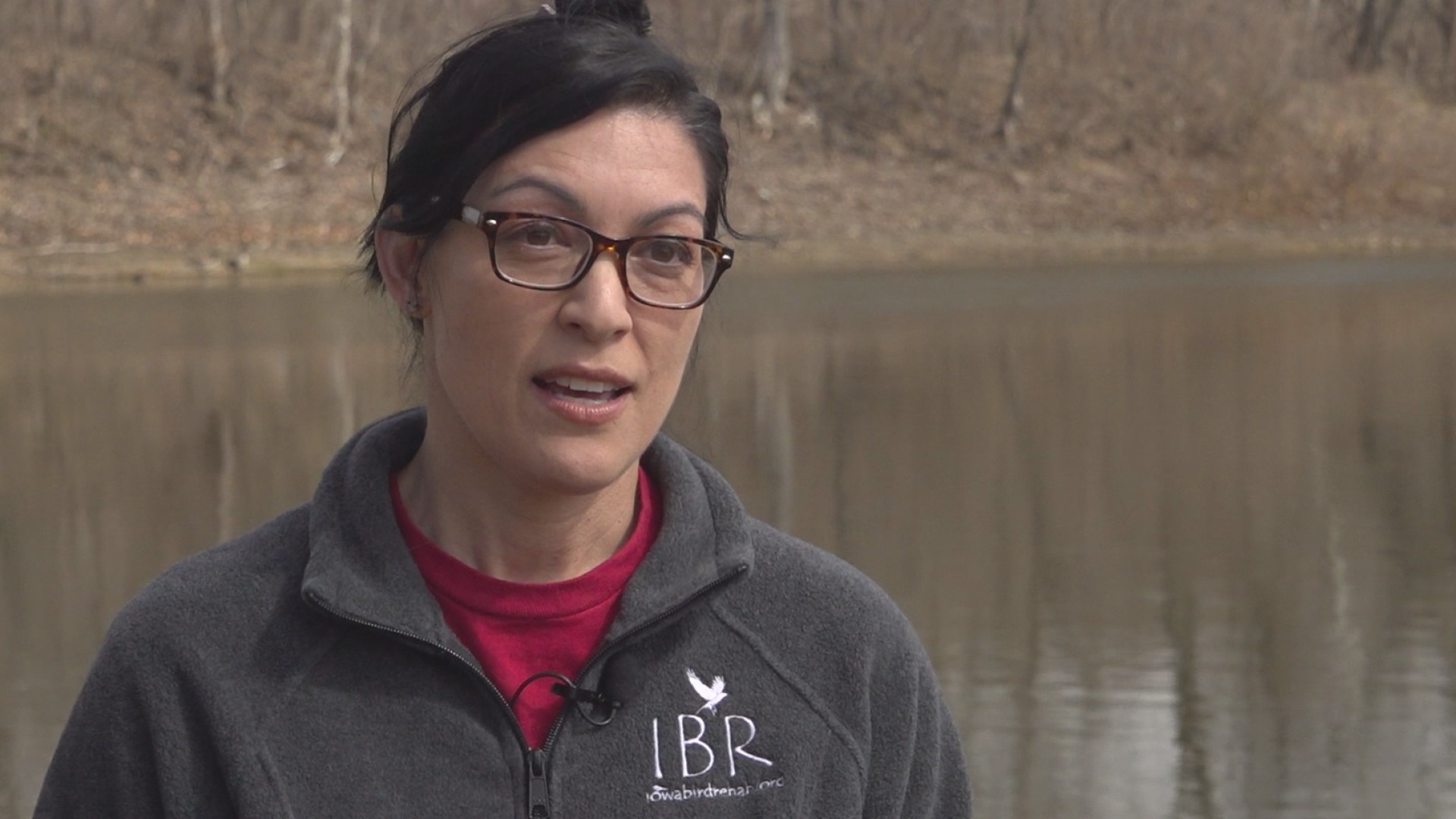JOHNSTON, Iowa — Since January, Iowa Bird Rehabilitation (IBR) says dozens of trumpeter swans have died from lead poisoning.
IBR, a nonprofit organization that steps in to rescue, rehabilitate and release wild birds back into the wild, takes in around 2,000 birds yearly. On average, only one or two are trumpeter swans.
But over the past few months, the nonprofit has admitted 11 swans into their care.
In a recent rescue call, founder Jenni Boonjakuakul said: "Six swans came from Little Wall Lake, and that lake actually had a total of 30 swans that were affected by lead, and 29 of them have died. We have one remaining swan that has survived."
Iowans send tips to IBR of birds they notice may be ill or injured, so the nonprofit can monitor, rescue and bring the birds into their care.
RELATED: Death of beloved New York City owl, Flaco, in apparent building collision devastates legions of fans
IBR was made aware of another swan case a few weeks ago near Principal Park in downtown Des Moines. A volunteer with the nonprofit noticed the swan alone, swimming far from its typical environment, so IBR assessed the area.
There wasn't an ideal place to catch the swan, so IBR decided to watch the trumpeter swan instead with occasional check-ins. Two weeks later, they found the swan dead. When they retrieved its body, six times the lethal threshold of lead was found upon testing.
There's not a clear answer where the lead poisoning these trumpeter swans — and other bird species — has come from, but IBR said some causes could be fishing tackle or leftover fragments of lead shot from waterfowl hunting (before using lead was banned in the late '80s).
"It's heartbreaking to watch them because they're sick, and they don't look good, and then they won't eat," Boonjakuakul explained. "So you definitely, I think, get attached to certain cases. This one in particular was definitely harder on all of us that were caring for the swans."
And with the drought that a majority of the state of Iowa is facing right now, receding water levels mean trumpeter swans, with those long necks of theirs, can accidentally consume lead fragments at the bottom of lakes and rivers more easily.
"Lead toxicity is very hard on the body," Boonjakuakul said. "It's the effects of the lead. It causes muscle weakness, it causes their digestion to stop, and so they start losing weight and pretty much starve to death."
To help omit lead introduction to bodies of water, IBR suggests using lead-free tackle when fishing and lead-free ammunition while hunting. The nonprofit also recommends anyone who sees a bird needing help or exhibiting abnormal behavior to contact them.

